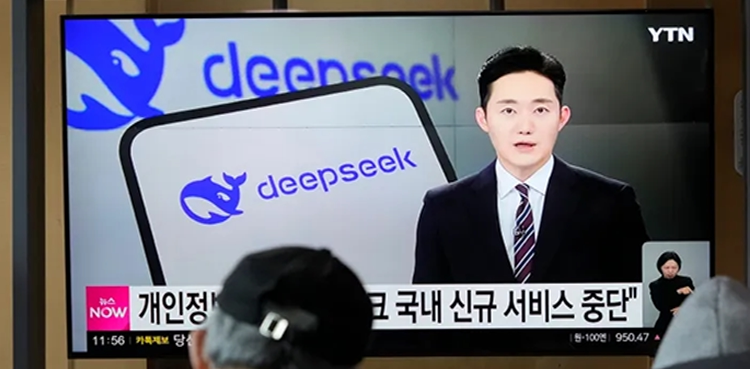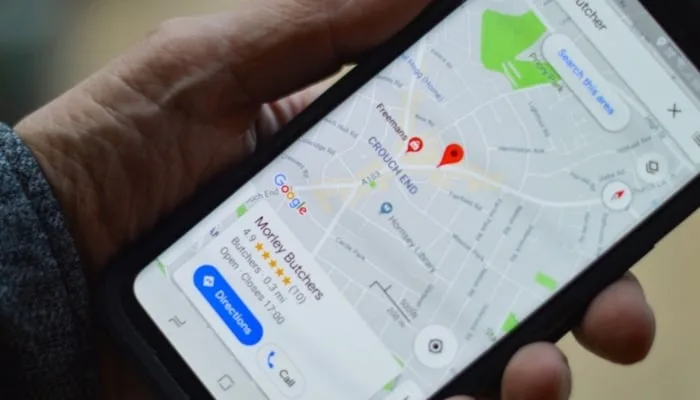South Korea has taken a significant step in the ongoing global scrutiny of artificial intelligence (AI) applications by suspending downloads of DeepSec’s AI-powered chatbot. The move comes as privacy concerns surrounding the Chinese startup’s data protection standards continue to grow.
Why South Korea Banned DeepSec?
According to international media reports, South Korea’s privacy watchdog announced on Monday that DeepSec’s R1 chatbot has been removed from both Apple’s App Store and local versions of Google Play. The decision follows an admission from the Hangzhou-based company that it had failed to comply with South Korea’s personal data protection laws. This development marks another instance of heightened regulatory oversight on Chinese technology firms operating internationally.
The removal of DeepSec from app stores in South Korea raises concerns about how AI-driven applications handle user data, especially considering the increasing integration of AI chatbots into daily life. With South Korea being one of the world’s leading tech hubs, this action sets a precedent that could influence other nations to take similar steps.
Global Concerns Over DeepSec’s Privacy Standards
DeepSec, an AI chatbot developed by a Chinese startup, has sparked a wave of controversy since its launch. The app’s sudden rise in popularity has drawn scrutiny not only in Asia but also in Europe and the United States. DeepSec’s meteoric success led to an unexpected chain reaction in the global tech industry, with major American and European technology firms feeling the heat.
Shortly after its launch, DeepSec became the most downloaded app in the United States within a week. The app’s rapid adoption alarmed major tech companies, causing a dip in stock prices for AI-driven technology firms in the U.S. and Europe. Many industry experts have raised concerns about whether the app adheres to global data privacy standards or poses a risk of potential data leaks.
U.S. Reactions and National Security Concerns
The explosive growth of DeepSec has also triggered a response from U.S. authorities. Former U.S. President Donald Trump has publicly criticized the app, calling it a “threat” and urging American tech companies to take it as a wake-up call. Trump warned that the availability of such an advanced Chinese AI chatbot at a significantly lower cost than its Western counterparts could undermine the U.S. tech industry’s dominance.
The U.S. Navy has also taken a hard stance against DeepSec, officially banning its use among personnel. In a strict advisory, the Navy instructed its members not to use DeepSec’s Aaron model for any official or personal communication. This move indicates growing concerns about potential security risks associated with the Chinese app, particularly regarding sensitive data access and possible surveillance.
The AI Race: OpenAI vs. DeepSec
Despite the controversy, industry leaders acknowledge DeepSec’s technological capabilities. The CEO of OpenAI, the American firm behind ChatGPT, admitted that the Chinese app is impressive. However, he reaffirmed that OpenAI is prepared to compete with it in terms of innovation and security standards.
DeepSec has reportedly been developed with an investment of only $6 million—an astonishingly low figure compared to the billions spent by U.S.-based AI companies. The Chinese startup claims that its chatbot can rival OpenAI’s latest models in terms of computational power, coding efficiency, and general AI intelligence. If true, this positions DeepSec as a formidable competitor in the AI industry.
The Future of DeepSec: What Lies Ahead?
The removal of DeepSec from South Korean app stores and the ban imposed by the U.S. Navy highlight the broader concerns surrounding Chinese AI applications. While China has made significant strides in AI development, Western nations are increasingly skeptical about the ethical implications and security risks associated with Chinese tech firms.
With DeepSec now facing regulatory roadblocks in multiple countries, the company will need to take significant steps to regain trust. This includes improving transparency about its data collection policies, ensuring compliance with international privacy laws, and addressing security concerns raised by governments and institutions worldwide.
The suspension of DeepSec in South Korea is yet another example of the global AI battle between China and the West. As AI technology continues to evolve, governments worldwide are likely to impose stricter regulations on AI-driven applications, especially those developed by foreign entities.
DeepSec’s rapid rise and subsequent backlash serve as a stark reminder that innovation alone is not enough—compliance with privacy laws and global cybersecurity standards is just as crucial. While AI technology has the potential to revolutionize industries, its success ultimately hinges on how well companies balance innovation with ethical responsibility.
For now, DeepSec’s future remains uncertain as it navigates increasing scrutiny and regulatory challenges across multiple regions. Whether the Chinese chatbot can overcome these obstacles and establish itself as a global AI leader remains to be seen.



